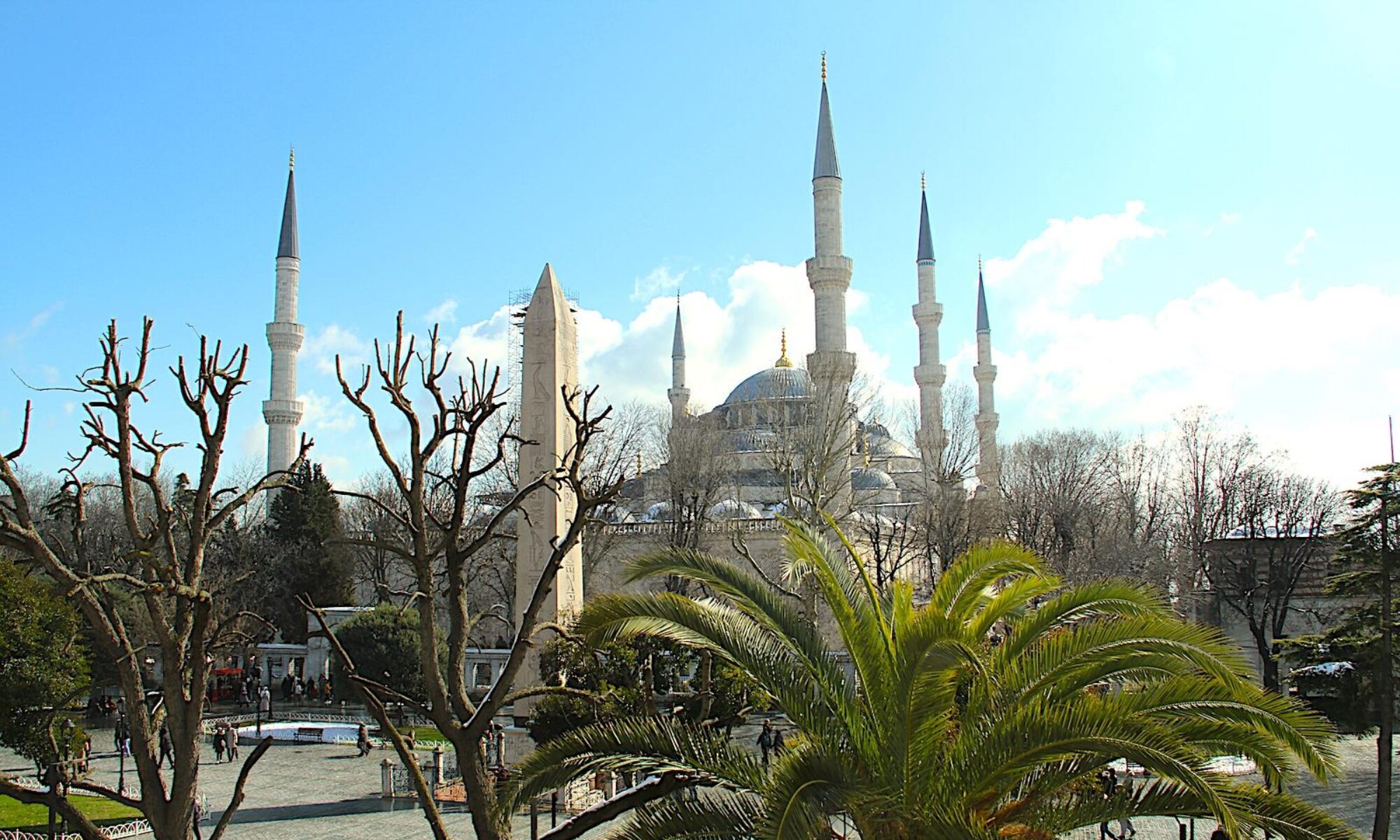Istanbul’s street cats and dogs are an inseparable part of the city’s soul, weaving into the daily rhythm of urban life with quiet dignity. Istanbul cats lounge confidently on mosque walls, café chairs, or inside bookstore and fashion shop window displays, treated like tiny Sultans by the people around them.
Residents and shopkeepers often care for these cats as communal pets, providing food, water, and makeshift shelters. This affection stems from cultural and historical roots; cats have long been revered in Islamic tradition and earned their place as beloved citizens in Istanbul. Their presence is so natural and accepted that a cat may saunter through a high-end boutique or nap in a sunbeam inside a government building without raising eyebrows.

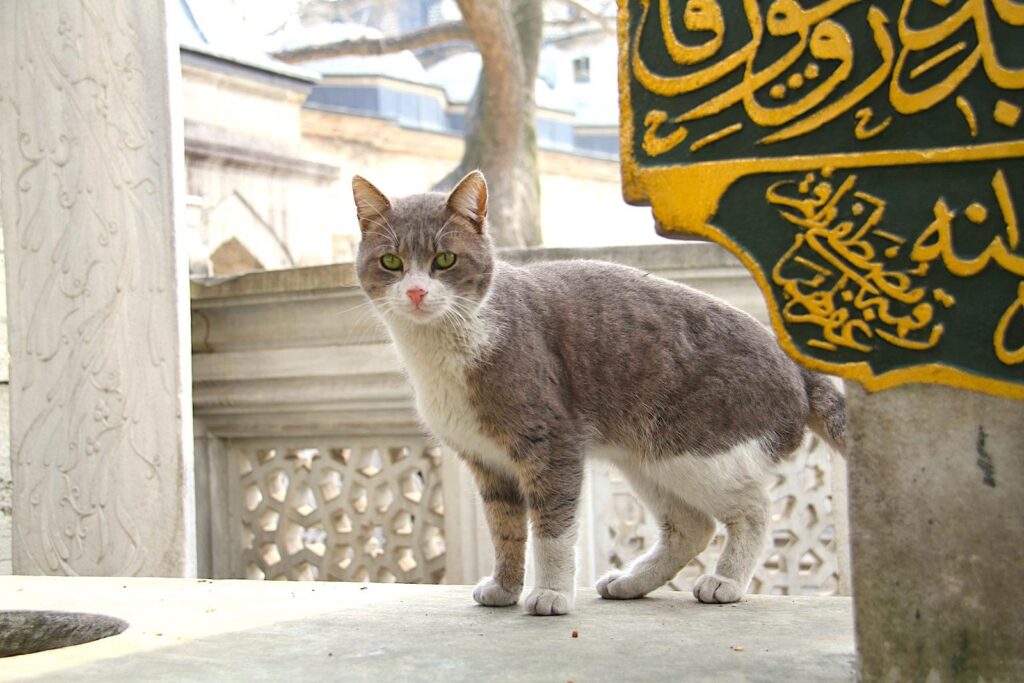
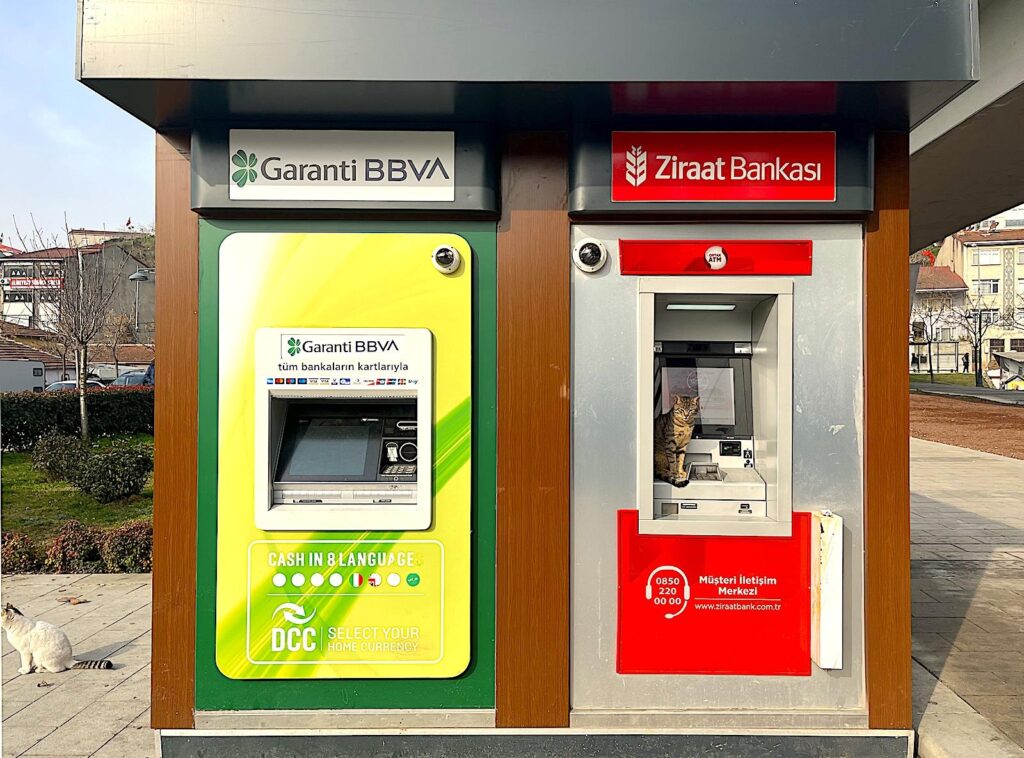
The city’s larger and more visibly resilient street dogs command their unique respect. Unlike in many big cities outside Türkiye, they are not shooed away or feared; they wear tags in their ears, indicating they’ve been vaccinated and neutered under municipal care programs. These dogs are calm, even noble in demeanour, and can be found resting in parks, following trams, or watching over a neighbourhood as guardians.
“People should be free like cats; they should neither own nor be owned.”
“Kediler gibi özgür olmalı insan; ne sahiplenmeli, ne sahiplenilmeli.”
— Can Yücel, Turkish poet (1926-1999)
Istanbulites tend to form bonds with the local dogs in their area, naming and looking after them. While they live outside, these animals are rarely seen as strays in the traditional sense; instead, they are seen as cohabitants of the city, a wild, warm-hearted reminder of Istanbul’s distinctive blend of chaos and compassion.
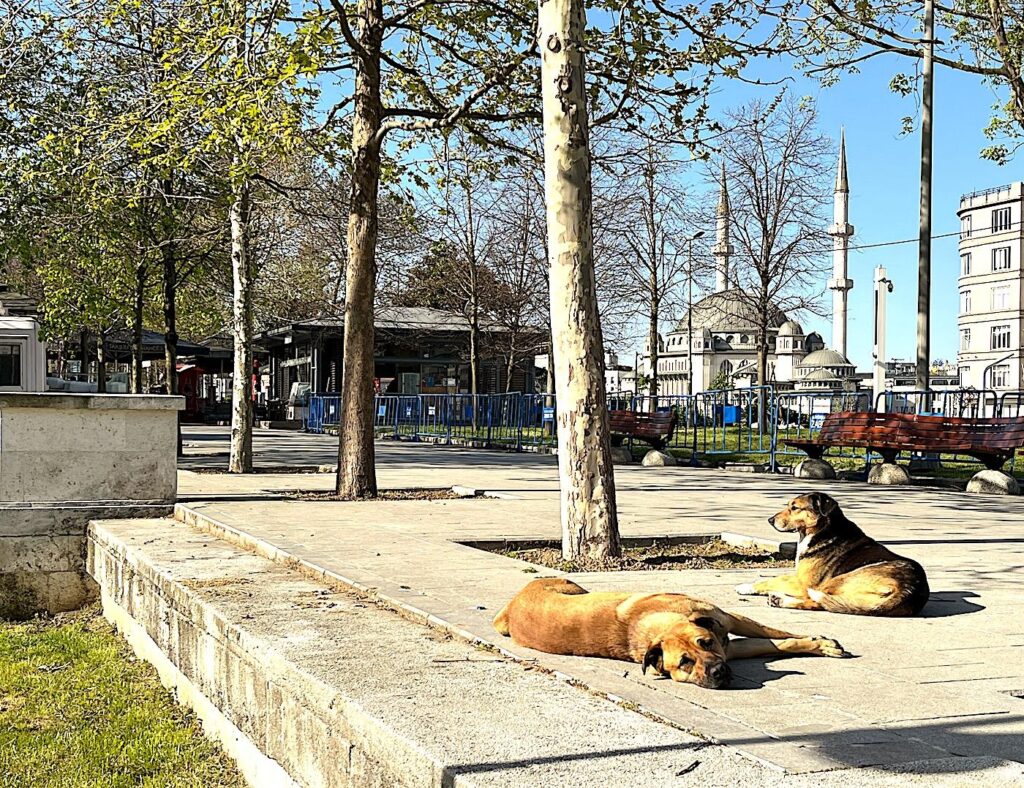
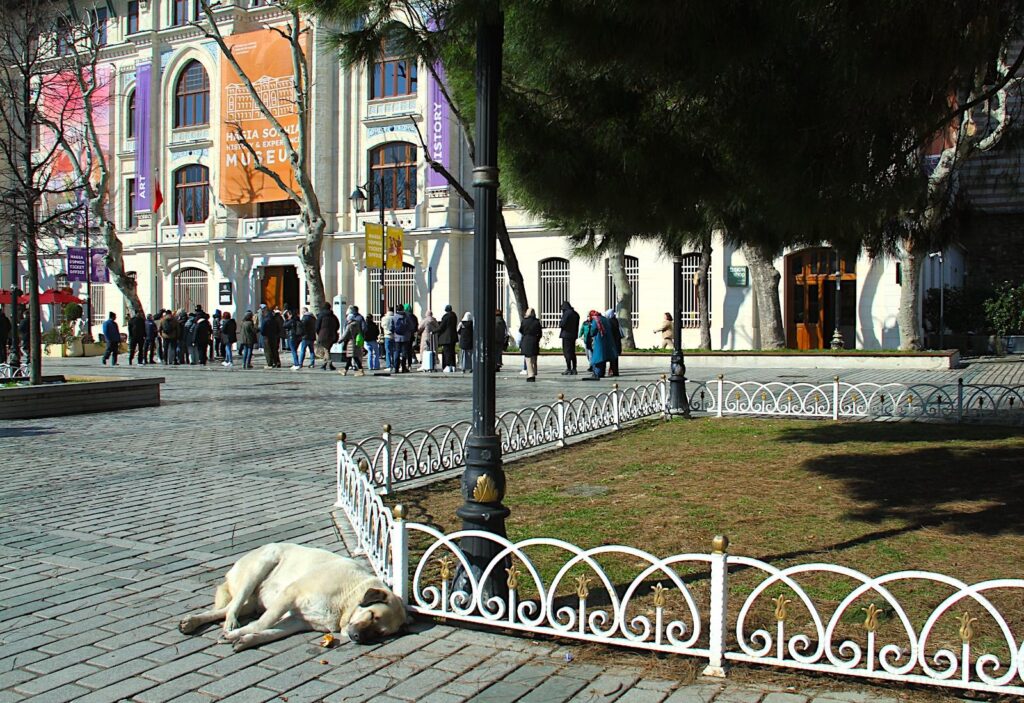
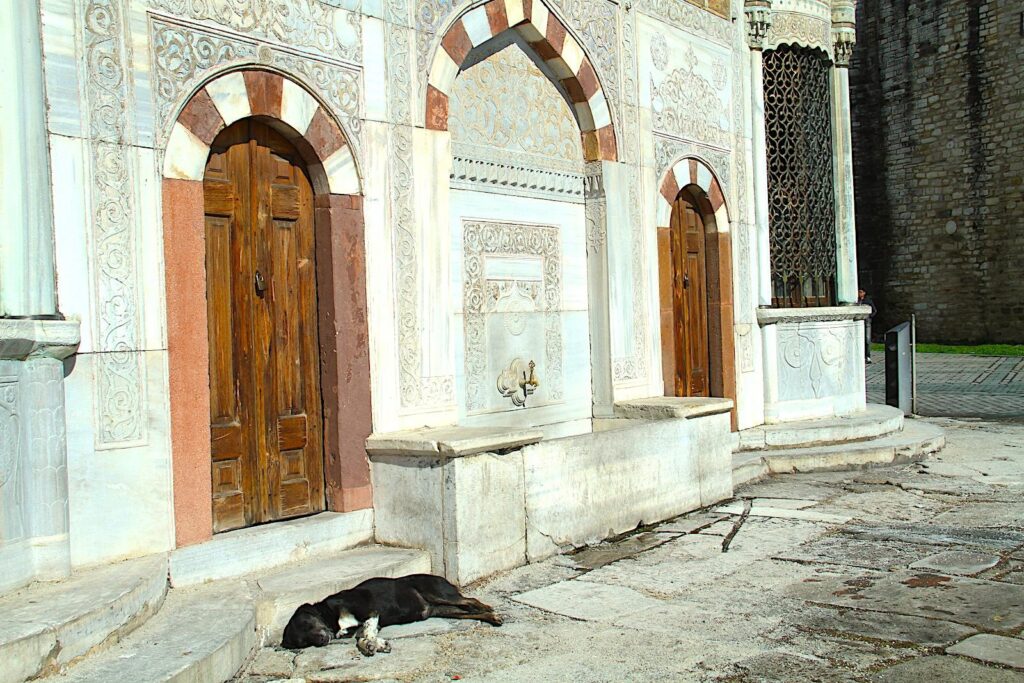
Istanbul Cats & Dogs – Table of Contents
The Care of Istanbul Cats & Dogs by Istanbul Metropolitan Municipality (İBB)
The Istanbul Metropolitan Municipality (İBB) has long been recognised for its compassionate approach to managing the city’s substantial population of stray cats and dogs. Through its Veterinary Services Directorate, İBB operates multiple animal health centres and mobile clinics that provide essential services such as vaccination, sterilisation, microchipping, and medical treatment. These animals are typically returned to their original neighbourhoods after care, fostering a harmonious coexistence between residents and street animals. This proactive strategy has significantly contributed to public health, with no reported rabies cases in Istanbul since 2016.
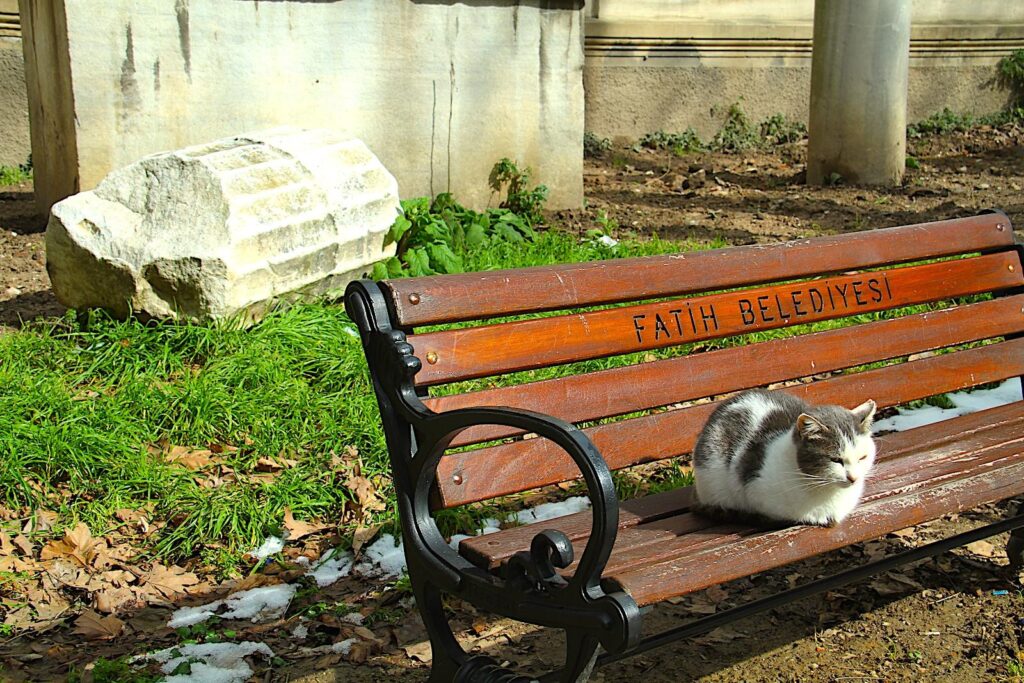
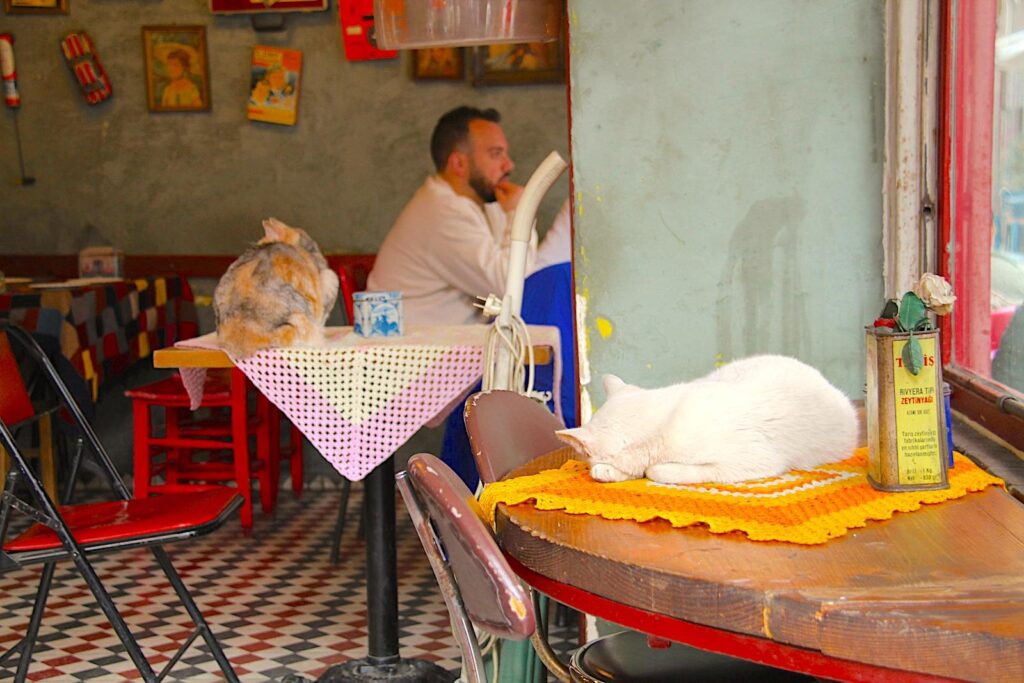
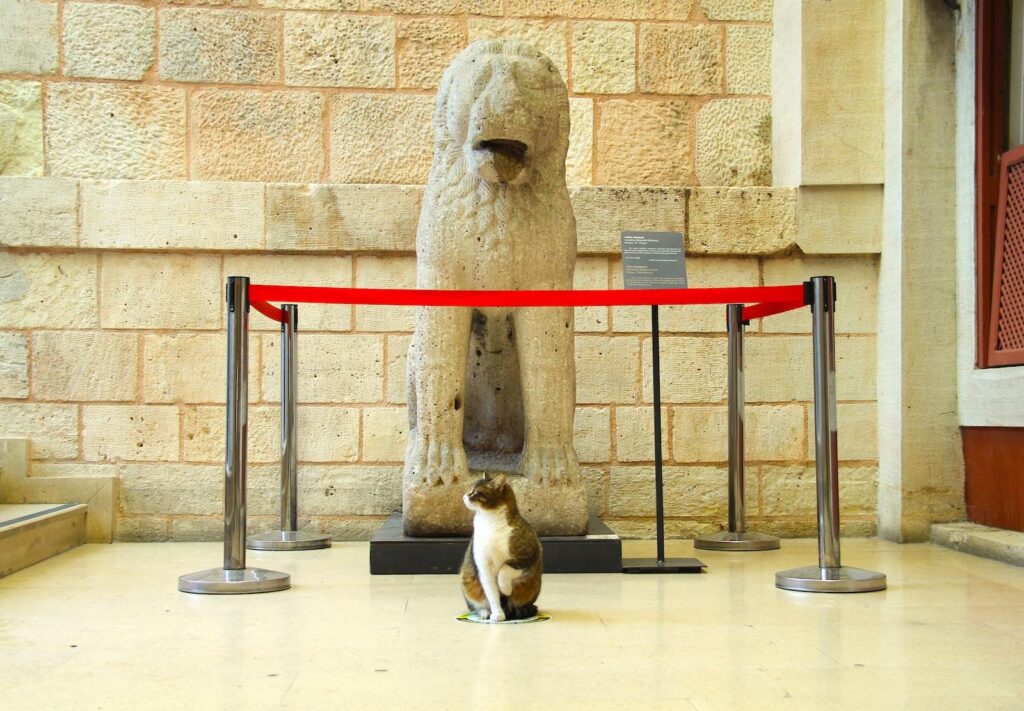
However, recent developments have introduced challenges to this model. In July 2024, the Turkish parliament enacted legislation mandating municipalities to remove stray dogs from the streets, house them in shelters, and, if deemed aggressive or ill, euthanise them. This law, intended to address public safety concerns, has faced substantial opposition from animal welfare advocates and segments of the public who fear it may lead to mass euthanasia and overcrowded shelters. Despite the national directive, Istanbul’s local authorities have shown resistance, emphasising their commitment to humane and community-integrated solutions for managing stray animals. This tension underscores the debate between centralised policy measures and localised, compassionate animal welfare practices.
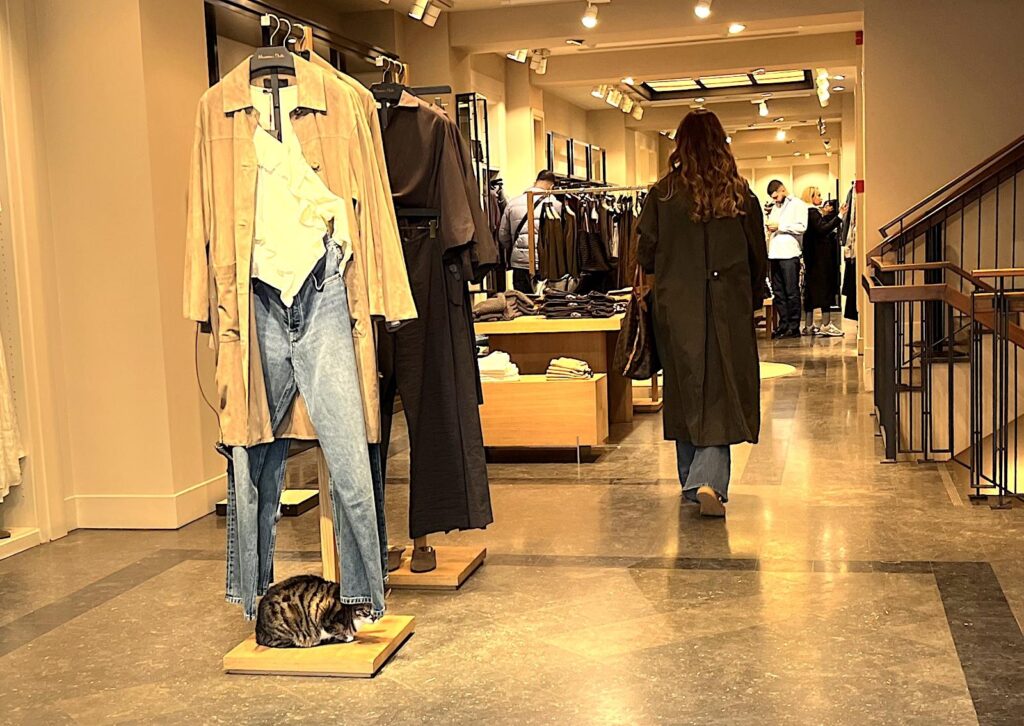
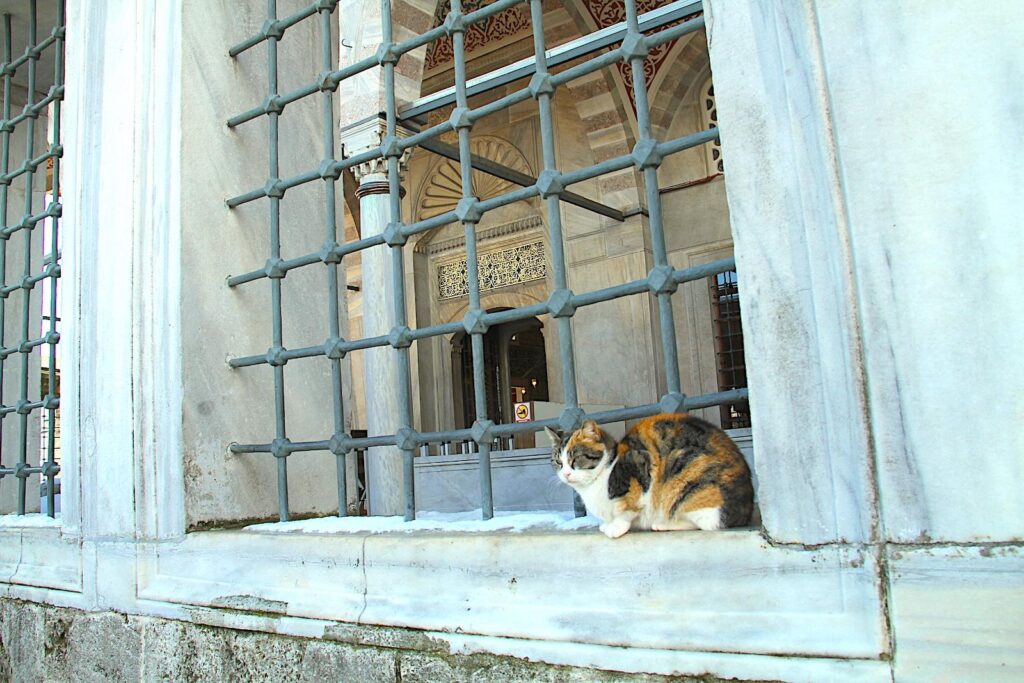
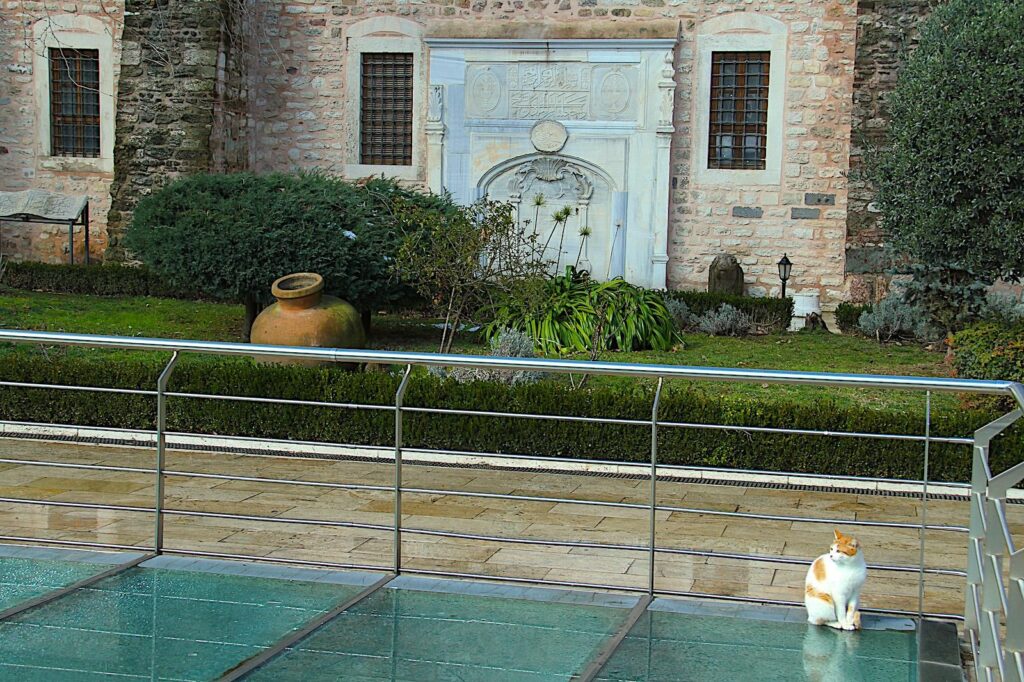
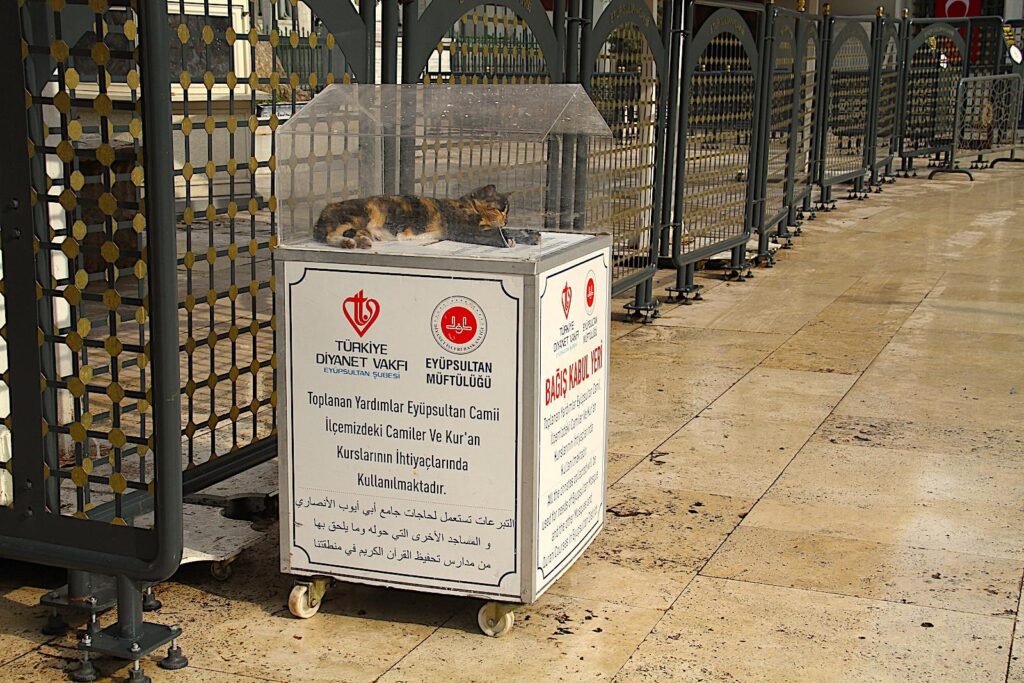
Maçka Sanat Park – The Park of Cats
Maçka Sanat Parkı, nestled in Istanbul’s Şişli district, has long been affectionately known as “Kedili Park” (“The Park of Cats”) due to its vibrant community of stray cats. These feline residents were a beloved part of the park’s atmosphere, often seen lounging on benches, weaving through the greenery, or approaching visitors with gentle curiosity. Locals and volunteers take pride in caring for them, providing food and water, and even constructing small shelters to ensure their comfort.
It is usual to see a student reading a book or a businessman on a mobile with cats sleeping nestled on their laps. If you are looking to befriend a cat for a little while, then the Park Sanat Café Bistro in the park is an ideal place to share a lunch or get close and personal with a cat over a coffee or beer. The park’s design and tranquil environment made it a perfect haven for cats and cat lovers, fostering a unique bond between the animals and the community.
“The loyalty of a dog is a reflection of the loyalty sought by man.”
“Köpeğin sadakati, insanın aradığı sadakatin yansımasıdır.”
— Yaşar Kemal, Turkish novelist (1923-2015)
Adoption of Stray Istanbul Cats & Dogs
Several dedicated organisations work tirelessly in Istanbul to rescue and rehome stray cats and dogs. Groups like Göktürk Animal Lovers Association, Animal Friends of Turkey (AFOT), a UK-based charity, and Kurtaran Ev (Rescue House) operate shelters and coordinate adoption efforts locally and internationally. These organisations often rely on volunteers and donations to provide medical care, food, and animal shelter. They also collaborate with international partners to facilitate overseas adoptions, ensuring rescued animals find loving homes abroad.
Adopting a stray animal from Istanbul to another country involves a detailed process to meet international regulations. The animal must be vaccinated, microchipped, and undergo a rabies titer test to confirm immunity. After the test, there is usually a waiting period, often around three months, before the animal can travel. The process can take up to four months and may cost over €1,000, covering veterinary care, documentation, and transportation. Despite the time and expense, many individuals and organisations are committed to this process, especially in light of recent laws in Türkiye that mandate the impounding of stray dogs, prompting increased efforts to find them homes abroad.
Istanbul Cats at Work
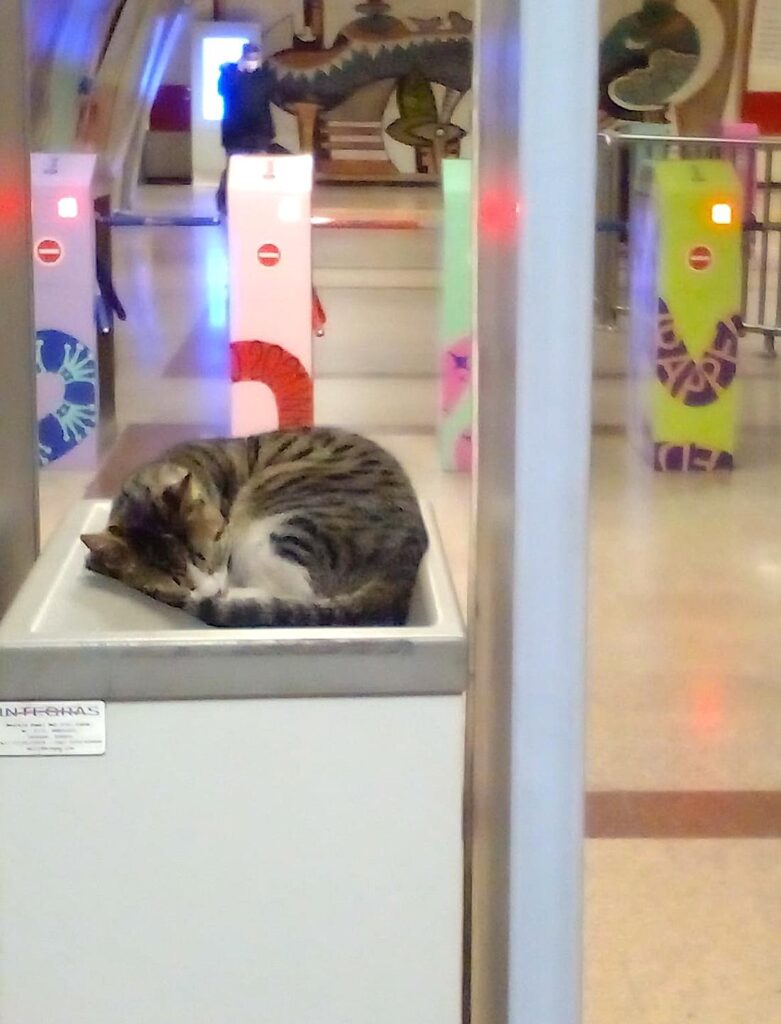
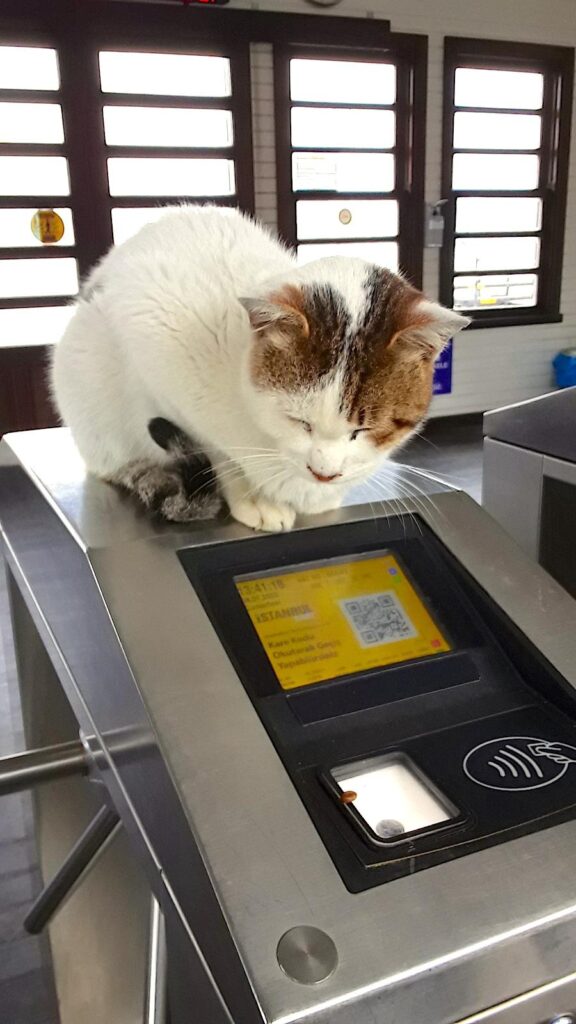
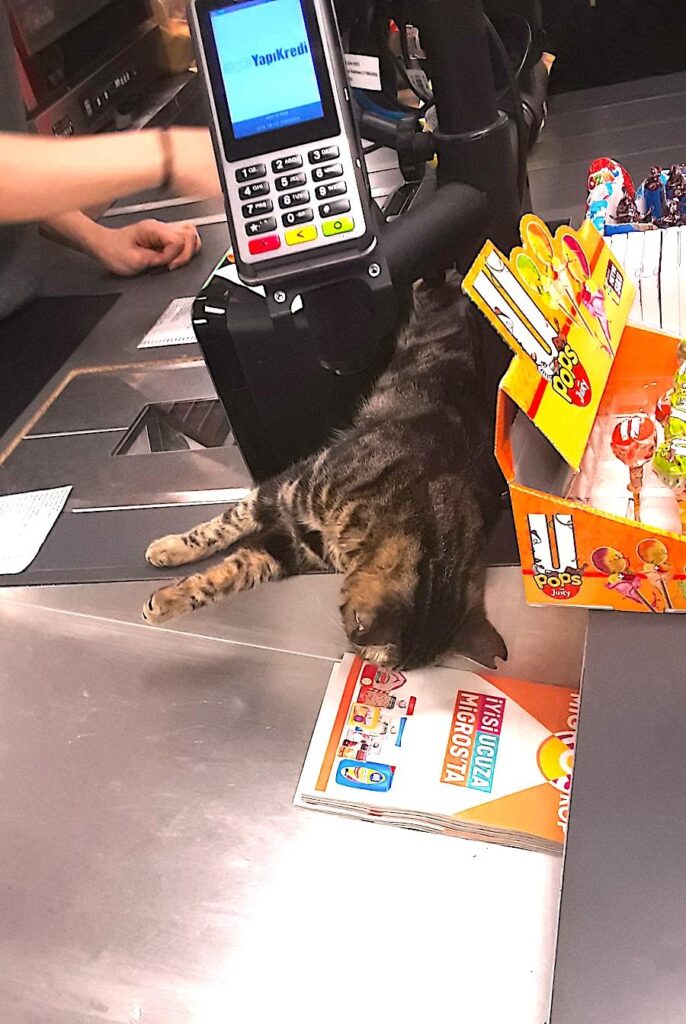
Istanbul Metropolitan Municipality Veterinary Services Directorate
The İBB Veteriner Hizmetleri Müdürlüğü (Istanbul Metropolitan Municipality Veterinary Services Directorate) is the official municipal body responsible for animal health and welfare in Istanbul. Operating under the Health and Social Services Department, it plays a central role in managing the city’s large population of stray animals, particularly cats and dogs. The Directorate provides essential services such as vaccination, sterilisation, microchipping, and medical treatment. These services are often delivered through animal health centres and mobile clinics, ensuring that animals receive care and are returned to their neighbourhoods, fostering a harmonious coexistence between residents and street animals.
Beyond medical care, the Directorate promotes animal welfare through public education initiatives. For instance, it conducts programs like the “Animal Love and Health Education” for primary school students, aiming to instil compassion and responsibility towards animals from a young age. Additionally, the Directorate operates mobile veterinary units, such as the “Vetbus,” which provide on-site medical assistance to needy animals across various neighbourhoods. Through these comprehensive efforts, the İBB Veteriner Hizmetleri Müdürlüğü demonstrates a commitment to humane and sustainable animal welfare practices in Istanbul.
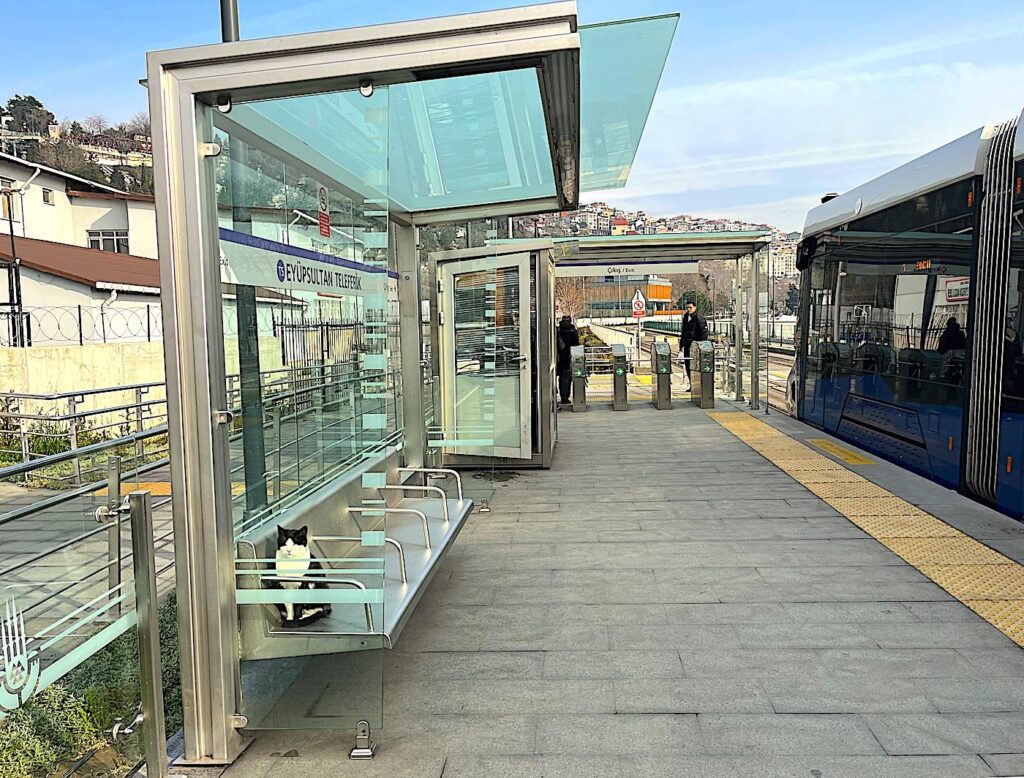

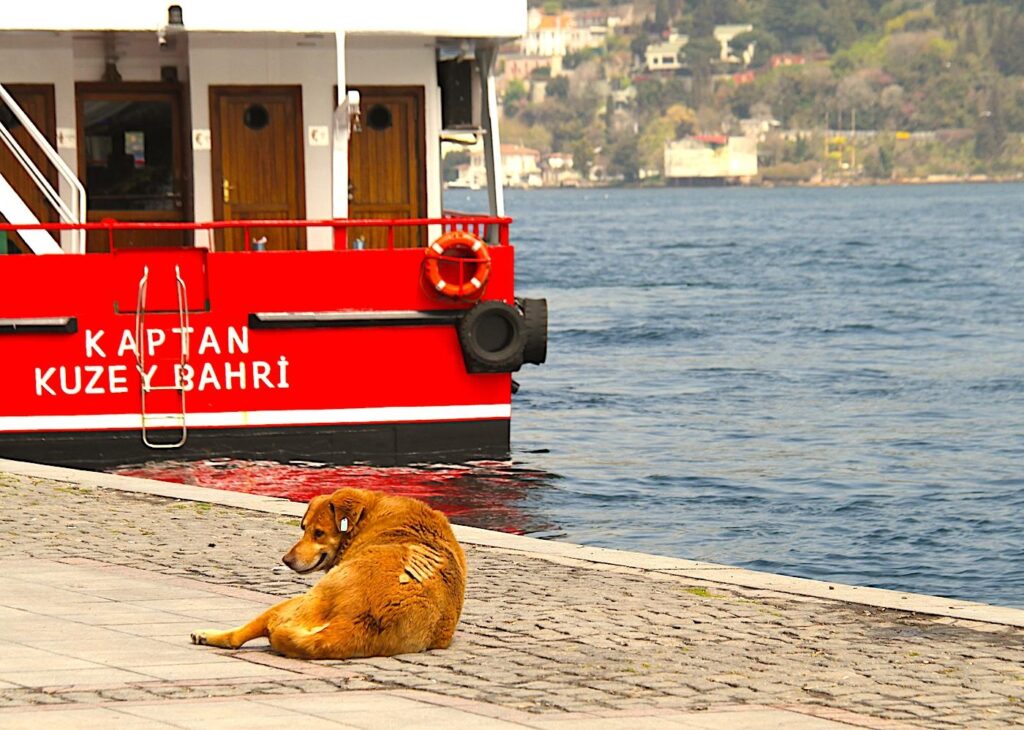
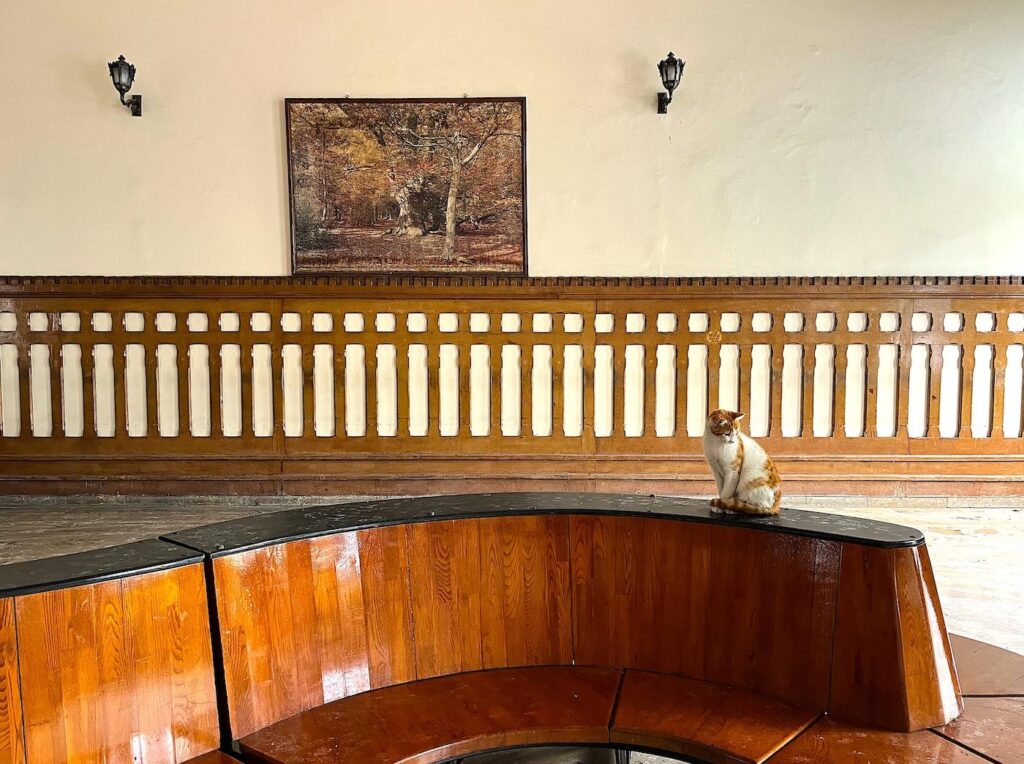
See also: LikeCesme.com – Çeşme Cats & Dogs
